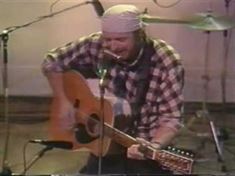Readers of a certain age will readily recall the halcyon days of the 1960s and early 1970s, when it seemed popular music was taking the lead role in redefining the political agenda of a generation.
Creedence Clearwater Revival, Bob Dylan, Jimi Hendrix, Country Joe and The Fish, Phil Ochs and yes, Neil Young and so many, many more, were standing up to “The Man” by writing about “What’s Goin’ On” and letting it be known that they —and by extension their fans— did not support the politics of confrontation and them-versus-us mentality that the Cold War encouraged.
It was Music that, many believed and still do, forced Lyndon B. Johnson to decide to not seek re-election after being so reviled by the young generation for his bombing campaigns conducted as part of his unwavering support of the Viet Nam War. It’s maybe not an exaggeration to say that popular music had a lot to do with the subsequent president, Richard Nixon, deciding to end the war altogether shortly after taking office.
But ever since then, it seems, North American society entered a phase of co-option and corporatization that saw music essentially “sell out” to the powers that be to become just another commodity and, gradually lose its role at the spiritual centre of political and social motivations and attitudes.
It’s been a long time since anyone has seriously written about the mores of songs being the socio-political lynchpin of anyone, let alone a generation.
But a couple of developments this week have got me, at least, wondering, whether music might again have a role to play in helping to shape the ethics and parameters of political discourse in our community.
It started with the announcement by musician Richard Underhill of his candidacy for Mayor Of Toronto. Although not widely known as someone holding political opinions at all (unless writing a famed song about the “Spadina Bus” counts as a political statement about transit) the Juno-winning saxophonist and songwriter at the core of the famed Shuffle Demons fusion-Jazz band has appeared before City Council to urge support for the arts and is, by some accounts, “a familiar face at City Hall.”
His platform is unabashedly “progressive” in nature and as detailed on his website he has well-thought-out and practical ideas on how to make the city more liveable and sustainable. Whether or not he can actually win the election is almost beside the point –he’s already making a difference through his candidacy by getting intelligent, literate potential voters who normally often eschew any involvement with politics at any level, to pay attention to the issues and, hopefully, to actually vote for a change.
The other musical/political event that has drawn international attention over the past week is, of course, Canadian Folk Rocker Neil Young’s public shaming of the federal government over its approach to the treaties it has with aboriginal communities in relation to the development of the Alberta tar sands.
Whether or not you agree with Young’s position, the fact that his statements at a Toronto kickoff concert for his tour in support the Athabasca Chipeyan First Nation Legal Fund prompted a caustic rebuke from the Prime Minister (to which Young rejoined with strong language suggesting PM Harper was being, shall we say, disingenuous in his comments) certainly gave the issue huge exposure. Jim Cuddy of Blue Rodeo, among many others, came out publicly in support of Young’s cause, further increasing its visibility.
In fact, Young had already, according to one report, surpassed the total fundraising goal of the tour before it even ended on the weekend.
Perhaps these two events, one very local, one very international in scope, are mere blips. Or perhaps they signal something else: the beginning of the fulfillment of the long-awaited promise of the Age of Interconnection to allow true democracy to flourish by better informing citizens of issues and making it easier for them to coalesce and make a difference.
-Gary 17






